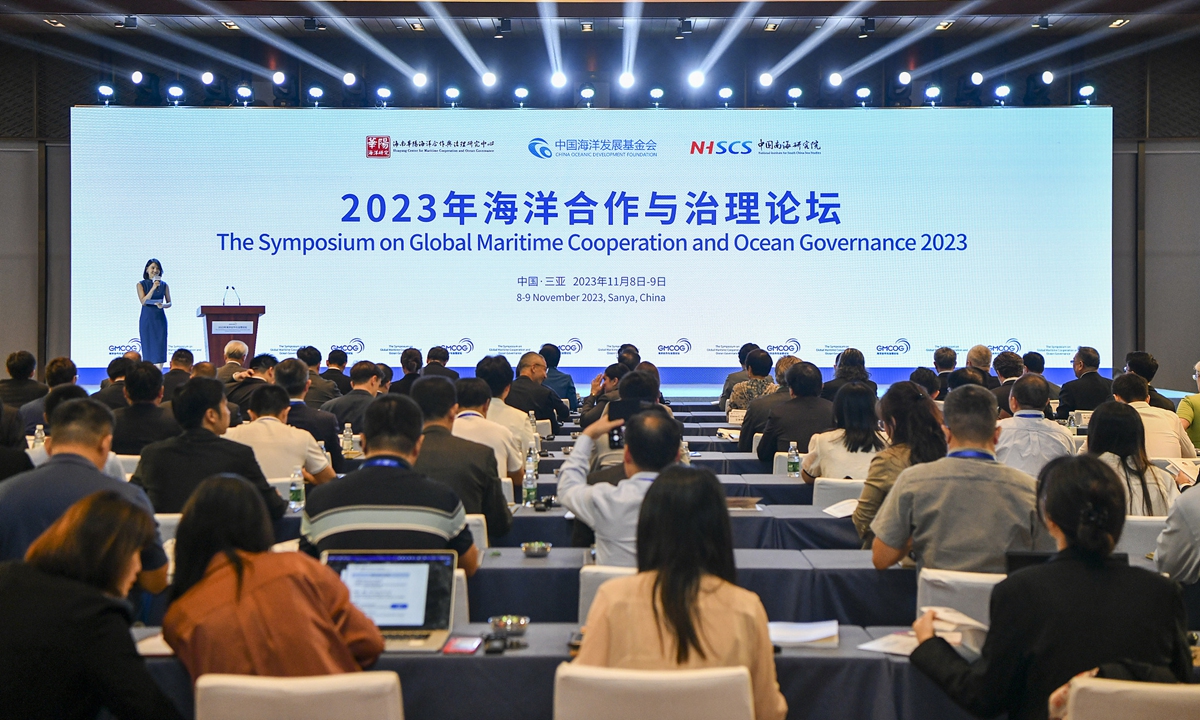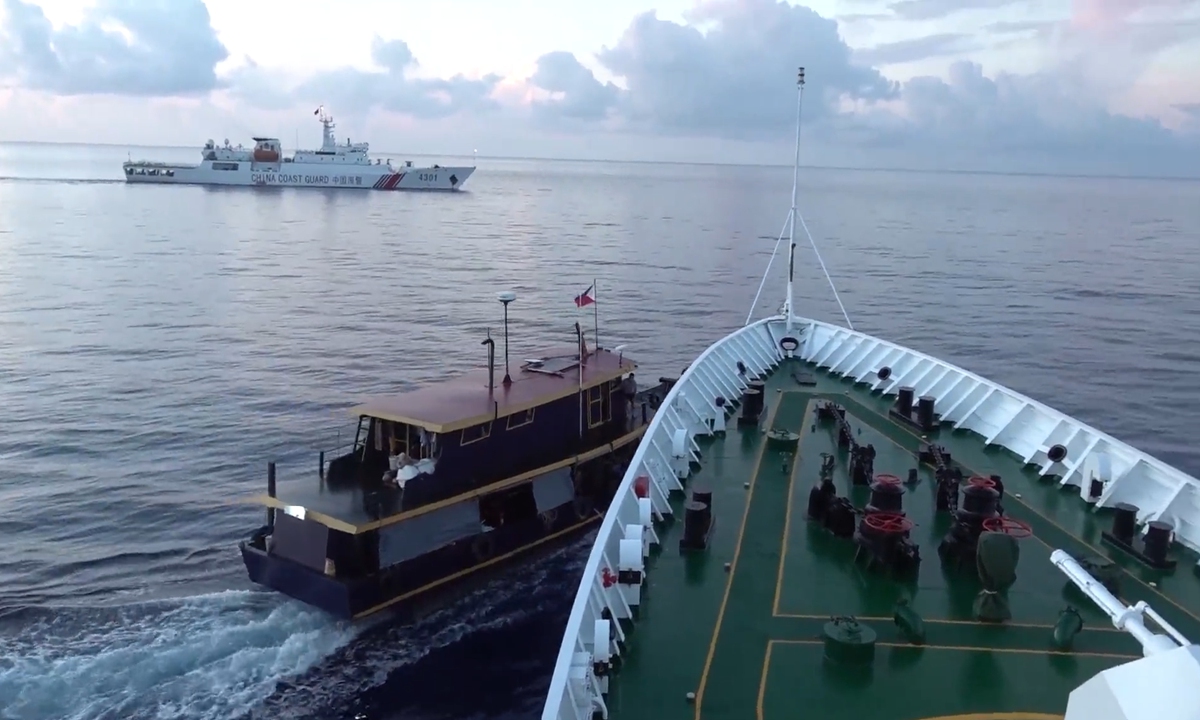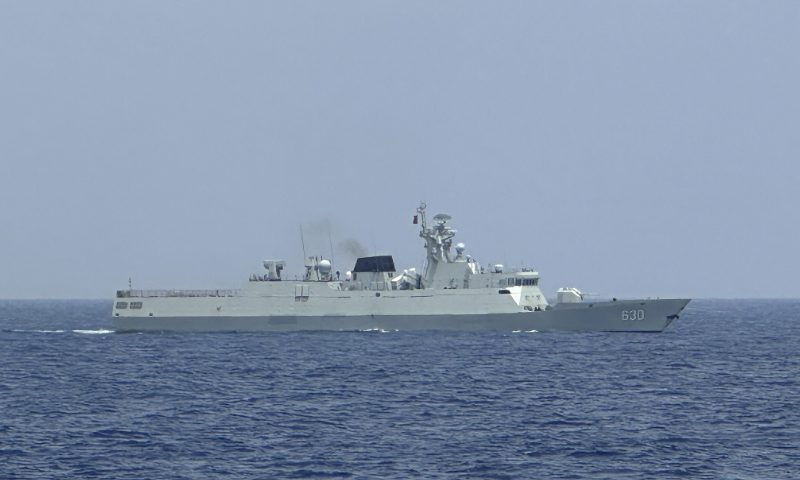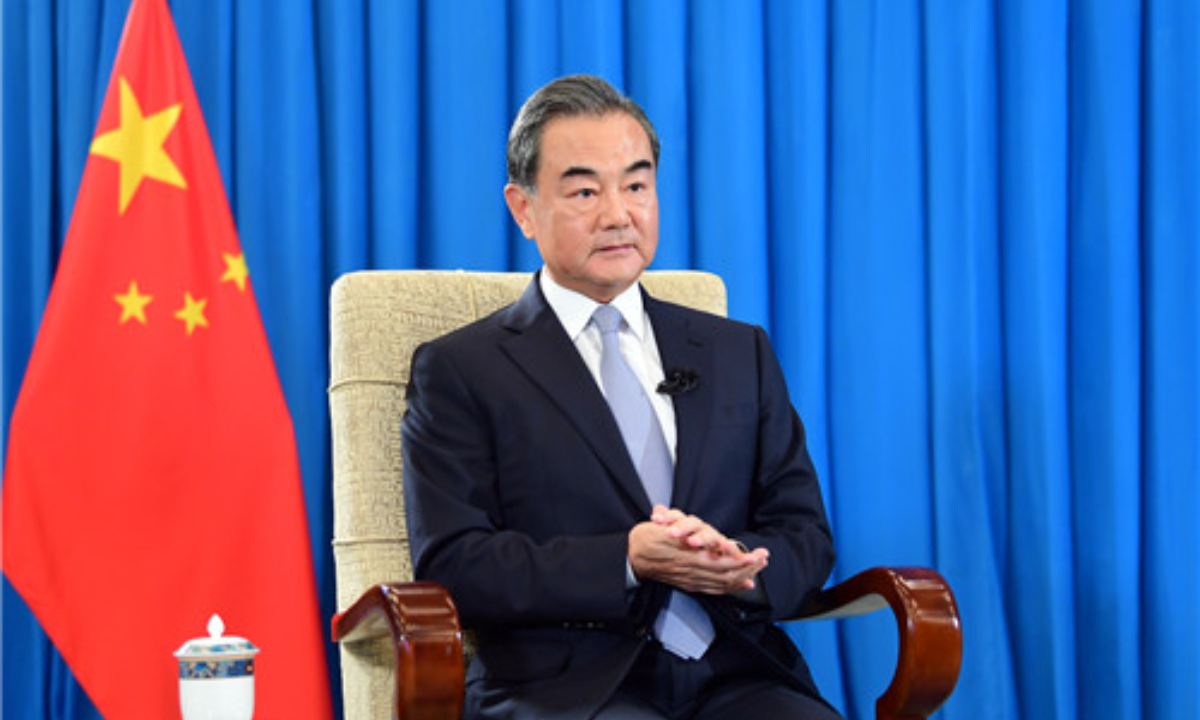China stresses S.China Sea disputes should be resolved through consultation between parties directly concerned, rejecting bloc confrontation, zero-sum approach

More than 300 experts and scholars, former political leaders, senior officials of foreign embassies in China, and representatives of international organizations and maritime departments from more than 30 countries and regions attended the Symposium on Global Maritime Cooperation and Ocean Governance 2023 on November 8. Photo: cnsphoto
Disputes over maritime territory and historic rights and interests should be resolved through friendly consultation between parties directly concerned, Chinese Foreign Minister Wang Yi said during a maritime forum on Wednesday, stressing that bloc confrontation and zero-sum game at sea must be firmly rejected.
Multiple experts and scholars interviewed by the Global Times at the forum highlighted the importance of cooperation when dealing with South China Sea issues. They stressed that China and ASEAN countries should be committed to handling South China Sea issue under a genuine multilateral framework.
More than 300 experts and scholars, former political leaders, senior officials of foreign embassies in China, and representatives of international organizations and maritime departments from more than 30 countries and regions attended the Symposium on Global Maritime Cooperation and Ocean Governance 2023 on Wednesday.
The South China Sea Arbitration is an example of political manipulation of the international rule of law of the sea, Wang said. It has undermined the atmosphere for maritime peace and cooperation in the region, eroded the basic values of fairness and justice, and should be a cause for alarm and be rejected by the international community, said Wang, also a member of the Political Bureau of the Communist Party of China (CPC) Central Committee and director of the Office of the Foreign Affairs Commission of the CPC Central Committee.
At the opening ceremony, Wang stated that it is the shared aspiration of all countries and the prevailing trend of our times to strengthen maritime cooperation and improve ocean governance. He pointed out that maritime development faces unprecedented risks and challenges: Cold War mentality and zero-sum thinking threaten peace and stability at sea; climate change and overexploitation are undermining the ocean's sustainable development; environmental pollution and willful dumping of nuclear-contaminated water are damaging the clean and beautiful marine environment; and natural disasters and piracy are disrupting the tranquility and order of the oceans.
He proposed that nations should stay committed to dialogue and consultation and safeguarding maritime peace and tranquility. It is important to take the legitimate concerns of all countries seriously, settle disputes and disagreements through dialogue and consultation, continuously improve emergency communication mechanisms and step-up regional security cooperation, so as to build solidly grounded and truly lasting maritime security. China will continue to work with ASEAN countries to fully and effectively implement the Declaration on the Conduct of Parties in the South China Sea, agree on a code of conduct on the South China Sea at an early date, and foster a peaceful and secure order in the South China Sea.
Also, he proposed that all parties should prioritize ecological conservation to preserve the region's clean and beautiful oceans.
China will adhere to the sustainable use of fishery resources, continue current fishing moratoriums and take resolute countermeasures against illegal fishing, the Chinese top diplomat said.
Vice Foreign Minister Sun Weidong said at the forum that China advocates dialogue and consultation and opposes the flaunting of military power; promotes joint consultation and construction while opposing maritime hegemony; advocates win-win cooperation and opposes the "small yard and high fence" mentality; promotes harmonious coexistence and opposes excessive exploitation of maritime resources.
At the forum, Gordon Houlden, director emeritus of China Institute, University of Alberta, Canada, told the Global Times that considering the world's oceans are the shared wealth of humanity, it is positive to see a leading power like China taking an active interest in promoting global cooperation and creating institutions and treaties to better govern maritime affairs and protect the ocean.
Although South China Sea disputes between stakeholders, including China and the Philippines, are unlikely to be resolved soon, progress can still be made in areas where there is common interest, such as addressing pollution, plastic waste, fishery management, and navigation safety, Houlden said.
He noted that while a comprehensive solution may not be achievable in the short term, focusing on specific issues can lead to incremental improvements. For example, the South China Sea is a vital source of food for a large number of people, as such the importance of cooperation should be highlighted.
He added that Japan and the Philippines have followed the US in creating regional security concerns and have done some irritating acts in the region.
Nazli Bin Aziz, deputy dean of the Faculty of Business, Economics and Social Development at the University Malaysia Terengganu and also a guest at the forum, told the Global Times that China, being one of the world's major powers, is at the forefront of scientific advancements and innovations in ocean-related matters.
He also said that one potential solution to address disputes between countries regarding maritime and boundary issues is through multilateral cooperation.
Given the significance and vastness of the region, it is imperative to prevent any conflicts from arising, as any disturbance in the Asia-Pacific would have global repercussions, he said.
Saia Moehau, president of the Tonga China Friendship Association, also urged all parties concerned in the maritime issues in the region to never give up on talking and dialogue and continue people-to-people friendship.




